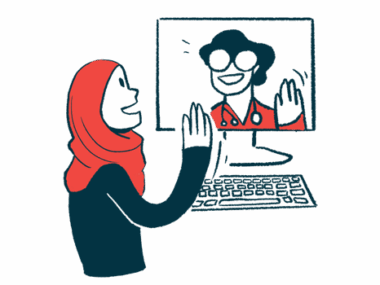Rare disease patients report great challenges in many areas of life
Survey highlights need for better understanding and resources for patients
Written by |

People with one or more rare diseases, such as Lambert-Eaton myasthenic syndrome (LEMS), face a wide range of obstacles that call attention to the need for better support and resources, according to a survey of patients living in Québec, Canada.
Such obstacles include diagnostic uncertainty, condescending attitudes from healthcare providers when faced with unfamiliar symptoms, poor follow-up, career discrimination, and misunderstandings by those around them.
“These elements highlight the importance of providing better support and tools for people living with one or more rare diseases,” Ariane Quintal, PhD, first author of the survey study and a professor at the University of Montréal, in Québec, Canada, said in a university news story.
Details of the survey were published in the journal HEC Forum in the study “Understanding Rare Disease Experiences Through the Concept of Morally Problematic Situations.”
Challenges stem from general lack of understanding about rare diseases
People with rare diseases such as LEMS face significant challenges due to a lack of understanding about the condition’s underlying biology, symptoms, and treatment options. This can result in delays in diagnosis and obstacles in accessing appropriate care, which can have an impact on daily routine, family, career, leisure, and social interaction.
These challenges are known as “morally problematic situations,” defined as circumstances involving conflict, uncertainty, distress, or dilemmas about the best course of action. In these situations, individuals are less able to pursue activities that are meaningful to them.
However, morally problematic situations experienced by adults living with rare diseases are still poorly understood by the scientific and medical community.
The main objective of this study was to “acquire an in-depth understanding of morally problematic situations experienced by adults living with rare diseases in the province of Québec,” the researchers wrote.
The team developed an online survey targeting adults with one or more rare diseases or self-identifying with one or more undiagnosed rare conditions. The age of the 90 respondents ranged from 19-75 years, most of whom were women (84%).
82 rare diseases represented in patient survey
Respondents had 82 distinct rare diseases, with 72% having one rare disease. The most frequent rare disease was Ehlers-Danlos syndrome, making up 16% of the respondents, followed by Sjögren syndrome at 6%, and scleroderma at 4%.
Healthcare and family issues played a significant role in the emergence of morally challenging situations. Factors included negative attitudes from professionals, improper practices (such as refusing to care for patients), limited resources (such as unsuitable care facilities), and demanding obligations, like caring for one’s family.
Respondent’s personal and situational factors contributed to morally challenging situations, which were often unchangeable and connected to the nature of their rare diseases. Examples included medical care and monitoring requirements, adverse health effects, co-occurrence of other rare disorders, and genetic concerns about reproduction.
In many cases, personal values and relationships were at risk, primarily in relation to healthcare, followed by personal life, career and studies, and social and family life.
When initially faced with their challenging situations, many respondents felt internal tension, manifesting as discomfort arising from their undermined values. Tensions were marked by feelings of powerlessness, dilemmas, misunderstandings, inner conflicts, uncertainty, hesitation, questioning, doubt, and ambiguity.
These elements highlight the importance of providing better support and tools for people living with one or more rare diseases.
When encountering morally challenging situations, most respondents experienced a range of emotions, including distress, worry, sadness, anger, isolation, helplessness, disrespect, guilt, shock, exhaustion, and poor self-esteem. Positive emotions were rarely reported.
Many respondents encountered lasting emotions in the aftermath of those situations, including worry, sadness, stress, loss of trust, diminished self-esteem, isolation, anger, guilt, helplessness, feelings of disrespect, and exhaustion.
In response to internal tensions and emotional experiences, many respondents outlined empowerment strategies they used to address challenging situations. They took proactive steps, often by adopting a positive mindset or seeking support from allies. Despite these difficulties, their efforts focused on creating favorable conditions to achieve goals, enhance well-being, and promote personal growth.
Implementing the strategies led to situation changes, as most responses (66%) indicated.
In problematic situations, most patients experienced unsatisfactory resolution
Of the problematic situations, most (65%) had an unsatisfactory resolution, with some respondents reluctantly settling for unwanted choices or imposed decisions.
A few morally problematic situations resulted in satisfactory resolutions. This occurred by making self-care decisions, such as leaving a job for better rare disease care or having their experience validated by receiving a formal diagnosis. Other strategies included overcoming difficulties, such as suicidal thoughts, taking successful risks like invasive medical procedures, and contributing positively to others, such as creating patient support groups.
Finally, a model was developed based on these data and relevant literature. It showed that morally challenging situations originate from various sources and resulted in emotional responses.
In these situations, patients can use empowerment strategies that lead to change, positive or negative.
“In sum, this study advances understanding of the moral experiences of adults living with rare diseases while proposing a comprehensive conceptual tool to guide future empirical bioethics research on moral experiences,” the researchers concluded.








